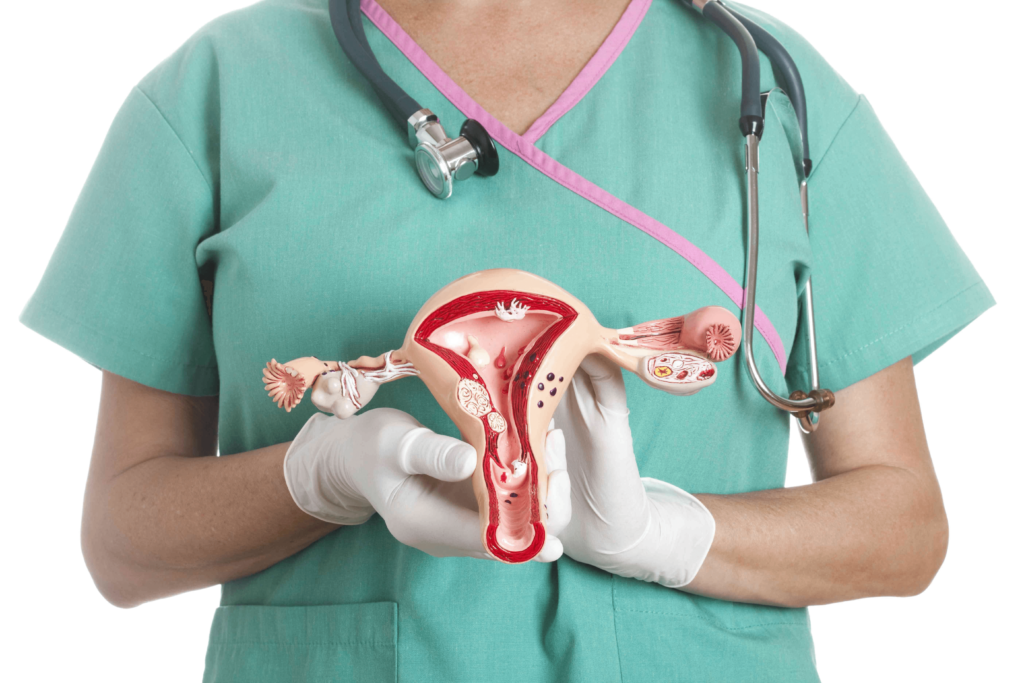PCOS (Polycystic Ovary Syndrome) A Comprehensive Guide
Polycystic Ovary Syndrome, commonly known as PCOS, is a complex hormonal disorder that affects millions of women worldwide. It is characterized by a combination of symptoms that can significantly impact a woman’s reproductive health, metabolism, and overall well-being. Understanding PCOS, its causes, symptoms, and management strategies is essential for those affected by this condition. This comprehensive guide aims to provide detailed insights into PCOS, shedding light on its various aspects to help women manage their health more effectively.
Understanding PCOS
PCOS is a condition that occurs when a woman’s ovaries produce excessive amounts of androgens, which are male hormones typically present in small quantities in women. This hormonal imbalance can lead to a range of symptoms and complications, affecting not only the ovaries but also other parts of the body.
The exact cause of PCOS is not fully understood, but it is believed to result from a combination of genetic and environmental factors. Women with PCOS may have a genetic predisposition to the condition, which is then triggered by factors such as insulin resistance, obesity, and an unhealthy lifestyle.
Symptoms of PCOS
The symptoms of PCOS can vary widely from one woman to another, and they may start gradually or suddenly. Some of the most common symptoms include:
- Irregular Menstrual Cycles: Women with PCOS often experience irregular periods, which may be infrequent, prolonged, or absent altogether. This is due to the ovaries not regularly releasing eggs (ovulation).
- Excess Androgen Levels: Elevated levels of androgens can lead to physical signs such as excess facial and body hair (hirsutism), severe acne, and male-pattern baldness.
- Polycystic Ovaries: The ovaries of women with PCOS may become enlarged and contain numerous small cysts (fluid-filled sacs). These cysts are actually immature follicles that have not developed properly due to hormonal imbalances.
- Weight Gain and Obesity: Many women with PCOS struggle with weight gain, particularly around the abdomen. This is often linked to insulin resistance, a common feature of PCOS.
- Difficulty Getting Pregnant: PCOS is a leading cause of infertility due to the lack of ovulation or irregular ovulation. Women with PCOS may have difficulty conceiving without medical intervention.
- Mood Disorders: Women with PCOS are at a higher risk of developing anxiety, depression, and mood swings, partly due to hormonal imbalances and the psychological impact of the symptoms.

Causes and Risk Factors
While the exact cause of PCOS is still unknown, several factors are believed to contribute to its development:
- Insulin Resistance: Insulin is a hormone that regulates blood sugar levels. In women with insulin resistance, the body’s cells do not respond effectively to insulin, leading to higher insulin levels in the blood. Elevated insulin levels can cause the ovaries to produce more androgens, exacerbating the symptoms of PCOS.
- Hormonal Imbalances: Women with PCOS typically have higher levels of luteinizing hormone (LH) and lower levels of follicle-stimulating hormone (FSH), leading to irregular ovulation. Additionally, they may have higher levels of androgens, which are responsible for many of the physical symptoms of PCOS.
- Genetics: PCOS tends to run in families, suggesting a genetic component. If a woman’s mother or sister has PCOS, her risk of developing the condition is higher.
- Low-Grade Inflammation: Research has shown that women with PCOS often have low-grade inflammation, which stimulates polycystic ovaries to produce androgens. This inflammation is also linked to insulin resistance.
Diagnosing PCOS
Diagnosing PCOS can be challenging because the symptoms can vary widely and mimic those of other conditions. However, healthcare providers typically use a combination of medical history, physical exams, and specific tests to diagnose PCOS.
- Medical History and Symptom Assessment: A detailed discussion of the patient’s symptoms, menstrual history, and family history of PCOS or related conditions is crucial.
- Physical Examination: A physical exam may include checking for signs of excess hair growth, acne, and obesity, as well as measuring blood pressure and waist circumference.
- Blood Tests: Blood tests are conducted to measure hormone levels, including androgens, LH, FSH, and insulin. These tests can help confirm hormonal imbalances typical of PCOS.
- Pelvic Ultrasound: An ultrasound may be used to examine the ovaries for the presence of cysts and to assess the thickness of the endometrium (lining of the uterus). However, the presence of cysts alone is not enough to diagnose PCOS, as not all women with PCOS have visible cysts on their ovaries.
Managing PCOS
While there is no cure for PCOS, there are several effective strategies to manage its symptoms and reduce the risk of complications. Treatment is often tailored to the individual’s symptoms and may include lifestyle changes, medications, and, in some cases, surgery.
- Lifestyle Modifications:
- Healthy Diet: A balanced diet that includes plenty of fruits, vegetables, whole grains, and lean proteins can help manage PCOS symptoms. Reducing the intake of processed foods, sugars, and unhealthy fats is also important, particularly for women with insulin resistance.
- Regular Exercise: Physical activity is crucial for managing weight, improving insulin sensitivity, and reducing the risk of cardiovascular diseases. Aim for at least 30 minutes of moderate exercise most days of the week.
- Weight Management: Losing even a small amount of weight (5-10% of body weight) can help regulate menstrual cycles, improve insulin resistance, and increase the chances of ovulation and pregnancy.
- Stress Management: Stress can exacerbate the symptoms of PCOS, so finding effective ways to manage stress, such as yoga, meditation, or therapy, is important.
- Medications:
- Birth Control Pills: Oral contraceptives are often prescribed to regulate menstrual cycles, reduce androgen levels, and manage symptoms such as acne and hirsutism.
- Anti-Androgen Medications: These medications can help reduce the effects of excess androgens, such as hair growth and acne.
- Metformin: This medication, commonly used to treat type 2 diabetes, can help improve insulin sensitivity and lower insulin levels, which may in turn reduce androgen production and improve ovulation.
- Fertility Treatments: For women with PCOS who are trying to conceive, fertility treatments such as clomiphene, letrozole, or gonadotropins may be recommended to stimulate ovulation.
- Surgical Options:
- Ovarian Drilling: In some cases, a surgical procedure called ovarian drilling may be considered. This involves making tiny punctures in the ovary with a laser or thin needle heated with electricity to restore normal ovulation. This procedure is usually considered only when other treatments have failed.

Complications Associated with PCOS
If left untreated, PCOS can lead to several serious health complications:
- Infertility: The lack of regular ovulation can make it difficult for women with PCOS to conceive.
- Type 2 Diabetes: Women with PCOS are at a higher risk of developing type 2 diabetes due to insulin resistance.
- Cardiovascular Disease: The combination of obesity, insulin resistance, and high cholesterol levels increases the risk of heart disease and stroke in women with PCOS.
- Endometrial Cancer: Irregular menstrual cycles can lead to the thickening of the endometrium, increasing the risk of endometrial cancer.
- Sleep Apnea: Women with PCOS, particularly those who are overweight, are more likely to develop sleep apnea, a condition characterized by interrupted breathing during sleep.
- Mental Health Disorders: The hormonal imbalances and physical symptoms associated with PCOS can lead to anxiety, depression, and other mental health issues.
Living with PCOS
Living with PCOS can be challenging, but with the right management strategies, women can lead healthy and fulfilling lives. It’s important for women with PCOS to work closely with their healthcare providers to develop a personalized treatment plan that addresses their specific symptoms and concerns. Regular monitoring of symptoms, lifestyle adjustments, and medical treatments can help manage PCOS effectively.
Additionally, seeking support from healthcare professionals, support groups, or online communities can provide emotional support and practical advice for dealing with the challenges of PCOS. Education and awareness about PCOS are also crucial, as many women may not realize they have the condition or may struggle to find accurate information.
Conclusion
Polycystic Ovary Syndrome is a complex and multifaceted condition that affects a significant number of women globally. While it presents various challenges, understanding its symptoms, causes, and treatment options can empower women to take control of their health. Through lifestyle modifications, medical interventions, and ongoing support, women with PCOS can manage their symptoms, reduce the risk of complications, and improve their quality of life.







